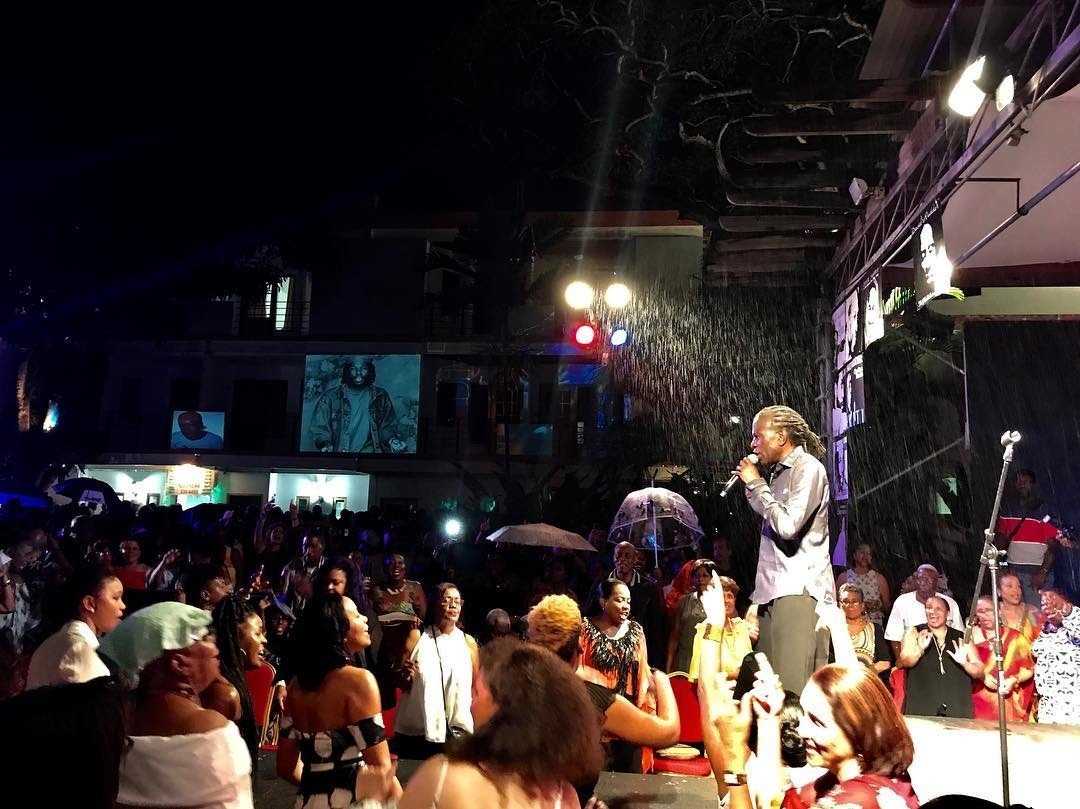BY: JELANI GRANT
David Rudder said he normally celebrates his birthday quietly, but this year the Calypso legend brought back his birthday party/music show. For his 60thbirthday, he held the Rudder 6.0 show so he could perform for his fans all night. ”It was more of just doing Soca and Calypso, but also Rhythm & Blues and Folk and stuff I grew up listening to and shaped my writing style,” he said. Rudder said the intent of his musical selection was to take listeners back to the vibe of the 1990s. “This one was more of a reflection of not just my life, but the life of the people who I serve,” he said.
For his 65thbirthday, Rudder 6.5 is scheduled to perform at the Sony Centre for the Performing Arts on June 9th in celebration of a music career, spanning more than five decades, which has traveledbeyond the West Indies to influence the world. Rudder 6.5’s first show was held in Trinidad at the Hotel Normandie. He said he intended to perform, “65 songs, one song for each year of my life, but time ran out for the license we have, after midnight we couldn’t go on.”
The show set for early June will include Rudder‘s Contra Band, an eclectic group of local musicians including long-time musical director Jeremy Ledbetter, and award-winningCuban-Latin jazz trumpeter, AlexisBaro.
Rudder’s legendary music created a unique blend of calypso, pop, jazz, and blues that surpassed the boundaries of culture, genre, language or geography. This distinctive sound may have been the reason the Sony Centre paid attention to him during a time where the Caribbeansound was not recognized universally like genres such as jazz and classical music.
Rudder said he performed at the Sony Centre when it was called the Hummingbird Centre, the first time a West-Indian performer would hold a large venue at the center. “This was one of the best acoustically tuned halls in the world, I did songs without a microphone,” he said. Rudder said that night, fourteen years ago, was a tremendous success not just because of the performance but the change he would see in the demographicsof performers. “It was a changing time in the life of the Sony Centre because it opened up the doors for different ethnicgroups to perform on a weekly basis,” he said.
Heavily influenced by the Shango rhythms of his childhood, singer/songwriter Rudder said the stage has always felt like home since he started performing at nine-years of age. “I understood that the stage was life from early on. When I was nine, I stepped on stage for a school competition and it was the most peaceful feeling, a peace I had never felt before,” he said.
Rudder’s lyrics have captured the essence of being Trinidadian, Tobagonian, and Caribbean. His music has gone beyond its roots in the carnival circuit of Trinidad. For instance, when he released Rally Round the West Indies, the hit song became a unifying anthem for the West Indies cricket team and region as a whole. Today, Rudder says he still has so much more to give. “I feel like there are so much more doors to open, I’m still kind of a child in a toy shop, looking at new wonders and everything to reflect on even if it’spainful,” he said.
“I’ve found, because of the state of the nation, especially in Trinidad, [Calypso] has reflected the pain underneath all of the joy, but everything is such a lament that it turned people off,” he said. But with this pain, Rudder said younger artists, such as Turner or Kes, have rediscovered melodies that he believes will reflect the same stories in a different way.
A recent recipient of the key to the city from Port of Spain Mayor Joel Martinez, Rudder brought a significant component of Caribbean culture to the forefront and will bless Torontonians with a night of entertainment guaranteed to shake the floor. The Sony Centre has posted a small clip of Rudder performing at Normandie, but in order to feel truly fulfilled, fans should already have secured tickets.

